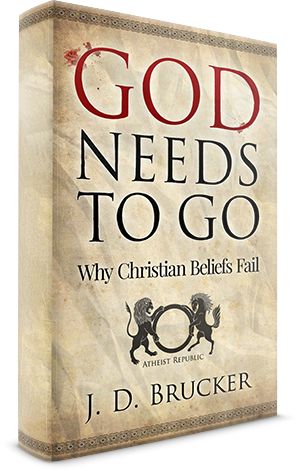
“My mom and dad are over there. They’re not married, but they do have sex.” Aren’t children adorable? My early elementary-aged son said this to our new neighbors, who are about as conservative and christian as you can get. To their credit, they chuckled self-consciously and behaved with grace and courtesy. Thank you, neighbors, and expect a fruit basket from us during the holidays. You’re terrific.
Kids will get you into trouble. This wasn’t the first time my son has spilled the wrong beans in the wrong place: “Hey look! On that magazine! It’s that STUPID politician! You know, the one you don’t like?” “Wow (to a child with foul language)! You sound just like my granddad!” “My mom saw you dance at the recital. She says you need lots and LOTS of practice.”
Just adorable.
It happens at not-so-funny times, too. What a child has to say can change lives, especially when it lets slip a side of a family that runs against social norms. Recently, a news story about a seven-year-old who was “banished” to be alone in school as a punishment for his disbelief in God has made the rounds. It was awful: a fellow student asked him where he went to church. When he told her he was not religious, he was ostracized by his classmates and his teacher. The story culminates in a conference call to the school, and ultimately, a lawsuit against the teacher in question.
Well, good. Except that the little boy will never regain his footing in that class, and maybe not in his community. Neither will his family.
We see it all too often - a student argues for his or her rights to a secular education in a public school, the family backs the student, and the community loses its mind. Luckily, we have resources that can help - the Secular Student Alliance, for instance, and the Freedom From Religion Foundation. While it’s good that these organizations can fight for the rights of children (and their families) who experience discrimination because of their lack of faith, the fight itself can build impenetrable walls between believers and nonbelievers.
I’m not sure much can be done in those cases. So often, these things happen in largely rural areas with a mainly fundamentalist christian population. It may be that it simply isn’t safe to proclaim one’s atheism, and children, with their notoriously loose tongues, can pose a problem.
Some children are old enough to understand the sad concept of living in the closet. They will have to be taught to guard themselves and their words, and choose their confidantes very carefully. Some are simply too young, and this problem is handled by many parents by simply offering no information on the subject until the children are able to better understand potential problems.
Luckily, there are plenty of families who live in larger, more urban areas. With a larger population comes more diversity, and usually, a higher level of tolerance. While discrimination is certainly practiced, there is a bigger base of potential allies, and children with a peer group of their own feel stronger and more supported. Parents can reinforce this by finding like-minded families in their areas, or atheist/humanist organizations nearby.
My son is lucky. We live in a big city with a diverse population. He has the opportunity to form a wide variety of friendships, with both religious and non-religious children. Because his peer group is so multi-cultural, we find it important to allow him as much freedom as possible to safely explore any philosophical path that he encounters in his friendships (hat tip to David McAfee and his “Belief Book”).
Still, we find it prudent to teach him to be on his toes and immediately report any signs of intimidation - and to refrain from stooping to such levels himself.





























